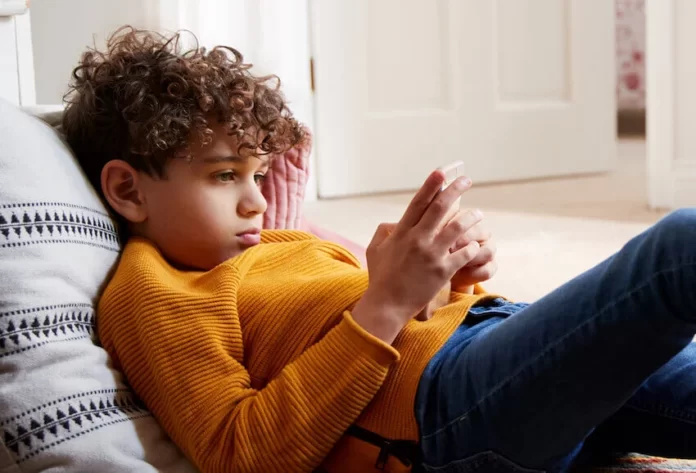Screen time has become an increasingly common part of our daily lives, with technology allowing us to quickly access various forms of media and entertainment at any time. While screens have made many things easier and more convenient, there are concerns about the potential negative effects of excessive screen time on our health and well-being.
How Much is Too Much?
So, how much screen time is too much? The answer is not straightforward, as it depends on various factors, including age, activity level, and type of screen time. However, here are some general guidelines to keep in mind.
For children aged 2 to 5 years old, the American Academy of Pediatrics recommends limiting screen time to one hour per day of high-quality programming. For children 6 years and older, parents should place consistent limits on the time spent using media. And ensure that screen time doesn’t interfere with adequate sleep, physical activity, and other healthy behaviours.
Other Side Effects
Adults should also aim to balance screen time with other activities, such as exercise, socializing, and hobbies. Excessive screen time has been linked to a range of health problems, including obesity, poor sleep, eye strain, and mental health issues like anxiety and depression.
One way to manage screen time is by setting goals and creating a schedule. This can help individuals be more intentional about their screen use. And ensure they are engaging in other activities that are important for their well-being. It can also be helpful to take regular breaks from screens and incorporate activities that promote physical activity and social connection.
How to Limit Screen Time
While there is no universal guideline for screen time, experts suggest children below two years old should have no screen time at all, except for video calls. For children aged 2 to 5 years old, screen time should be limited to one hour per day, while children aged 6 to 17 years old should have consistent limits on the amount of time spent using screens.
Parents can help children maintain healthy screen time habits by setting clear rules and being good role models. It is also important to encourage physical activity and face-to-face interactions to help promote healthy development.
Some Things to Keep in Mind
Another important factor to consider is the quality of screen time. Not all screen time is created equal, and some activities can be more beneficial than others. For example, using screens to connect with loved ones, learn new things, or engage in creative pursuits can be positive experiences. On the other hand, mindless scrolling or binge-watching can be more detrimental to health and well-being.
It’s also important to note that the type of screen matters. For example, the blue light emitted by screens can interfere with sleep. So limiting screen time before bed is a good idea. Additionally, prolonged use of screens with small text or images can strain the eyes. So it’s important to take regular breaks and adjust the screen brightness and size as needed.
Conclusion
In summary, there is no one-size-fits-all answer to how much screen time is too much. It’s important to consider factors like age, activity level, and type of screen time. And aim to balance screen use with other activities that promote health and well-being. By being intentional about screen time and incorporating healthy habits, individuals can enjoy the benefits of technology while minimising the potential negative effects.
FAQs
1. Does limiting screen time help?
Yes, it helps to reduce eye strain and migraines.
2. Why limiting screen time is bad?
When it is restricted, the child may be more likely to binge-watch later.
3. Is 10 hours a bad screen time?
Yes, it is very bad for the health.
Also read: Escape Rooms Benefit Your Health

































































